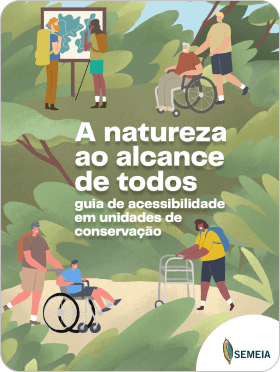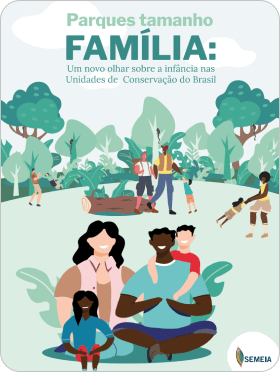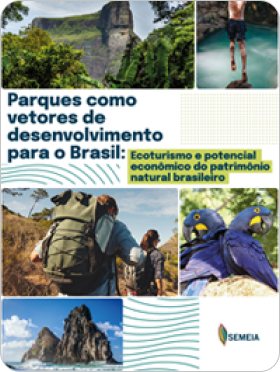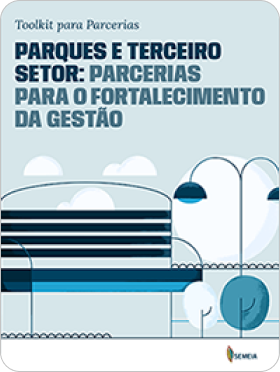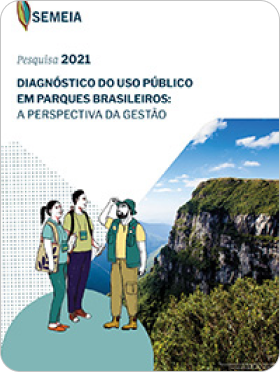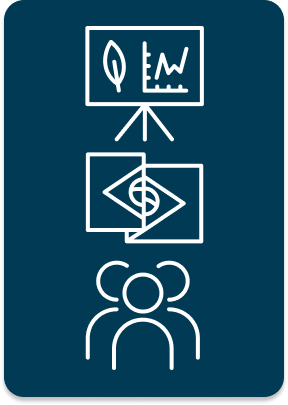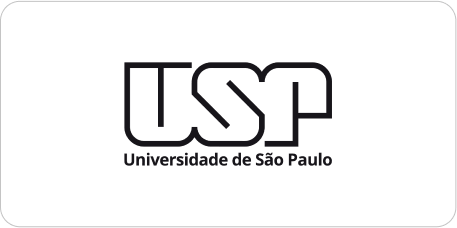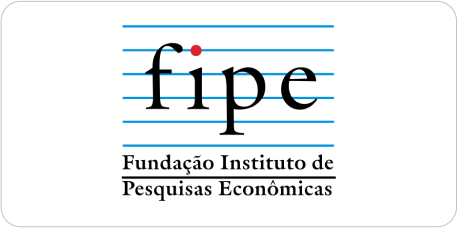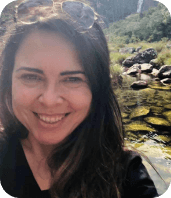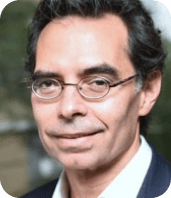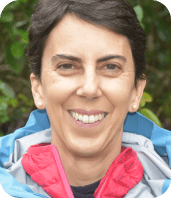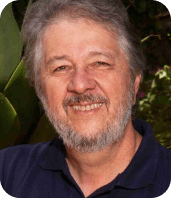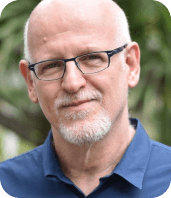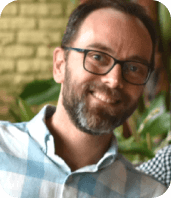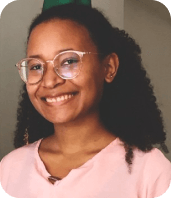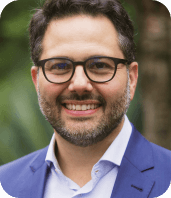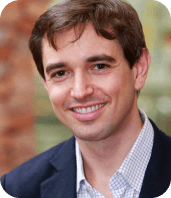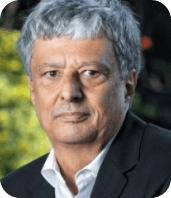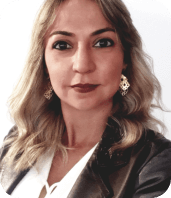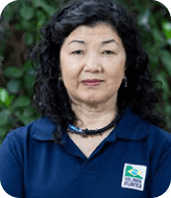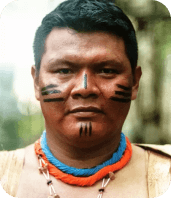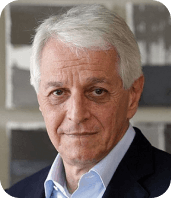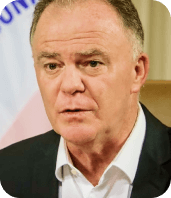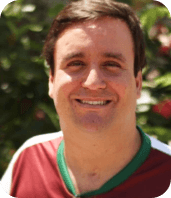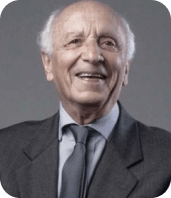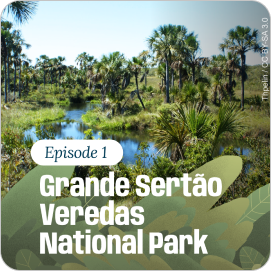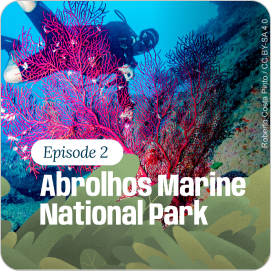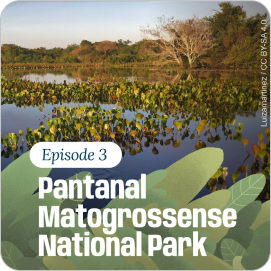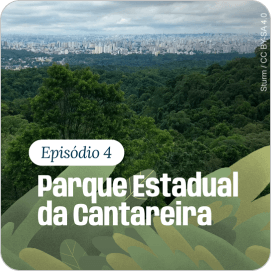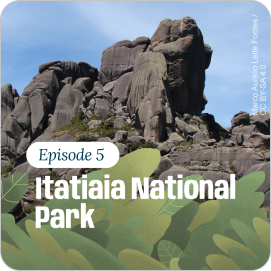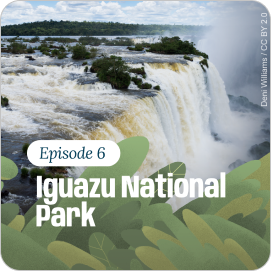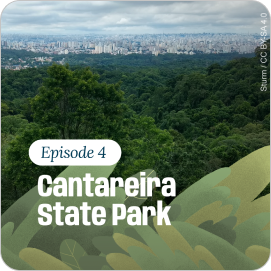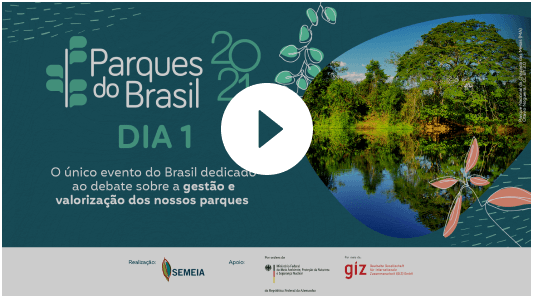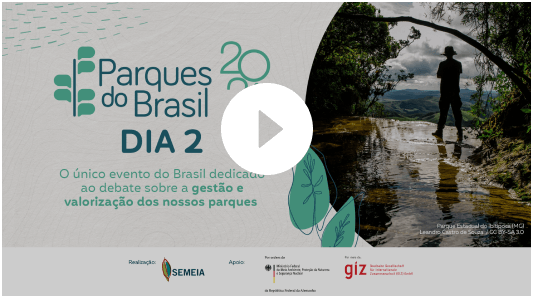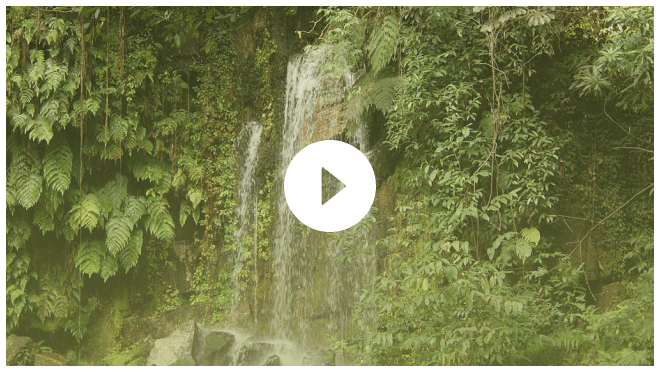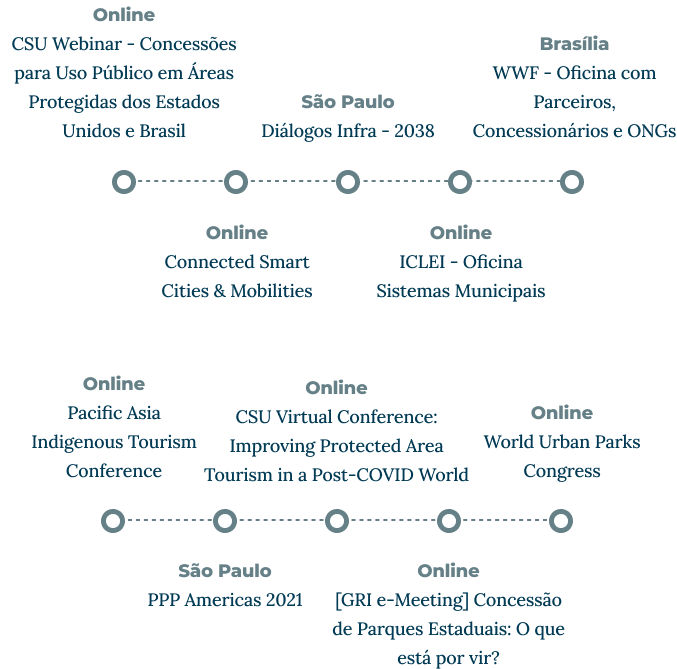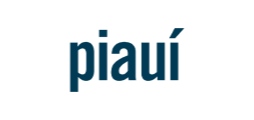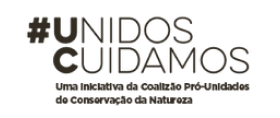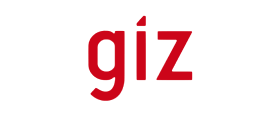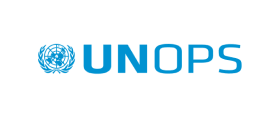Credits
Cover
Images kindly provided by 3Film Produtora Audiovisual.
1. Who we are
Cover:
Iguaçu National Park, state of Paraná | Mostovyi Sergii Igorevich
2. Message from the Board and the CEO
Cover:
Chapada Diamantina National Park, state of Bahia | Marcio Pascale
3. Helping governments care for parks
Cover:
Itatiaia National Park, state of Rio de Janeiro | Vitor Marigo
Federal Government:
Iguaçu National Park, state of Paraná | Bhmartimiano / CC BY-SA 3.0
Bahia:
Getúlio Vargas Zoo and Botanical Park, state of Bahia | Dudamedeirosss / CC BY-SA 4.0
Goiás:
Serra de Caldas Novas State Park, state of Goiás | Corel2403 / CC BY-SA 4.0
Mato Grosso:
Serra Azul State Park, state of Mato Grosso | Edevilson / CC BY-SA 3.0
Mato Grosso do Sul:
Várzeas do Rio Ivinhema State Park, state of Mato Grosso do Sul | Erick Caldas Xavier / CC BY-SA 4.0
Minas Gerais:
Parque Estadual do Ibitipoca (MG) | Thiago Gonçalves / CC BY-SA 3.0
Pernambuco:
Dois Irmãos State Park, state of Pernambuco | Leeto Araújo / CC BY-SA 4.0
Rio Grande do Sul:
Caracol State Park, state of Rio Grande do Sul | Tiago Fioreze / CC BY-SA 3.0
Santa Catarina:
Serra do Tabuleiro State Park, state of Santa Catarina | Thomas Lehmann / CC BY-SA 4.0
Estado de São Paulo:
Cantareira State Park, state of São Paulo | Sturm / CC BY-SA 4.0
Tocantins:
Jalapão State Park, state of Tocantins | João D'Andretta / CC BY-SA 4.0
Belo Horizonte:
Pampulha Modern Ensemble, state of Minas Gerais | Tuami Pricila Matielo / CC BY-SA 4.0
Porto Alegre:
Redenção Park, state of Rio Grande do Sul | Paulo RS Menezes / CC BY-SA 3.0
Recife:
Capibaribe River, state of Pernambuco | marcusrg / CC BY-SA 2.0
São José dos Campos:
Roberto Burle Marx Park – City Park, state of São Paulo | Mike Peel / CC BY-SA 4.0
Prefeitura de São Paulo:
Tenente Siqueira Campos Park – Trianon, state of São Paulo | Vinícius Lecci / CC BY-SA 4.0
4. Support for private engagement in park partnerships
Cover:
Vale da Ferradura Park, state of Rio Grande do Sul | Vitor Marigo
Coordination with sectoral entities:
Negreiros National Forest, state of Pernambuco | Bart vanDorp / CC BY-SA 2.0
Articulation with sectoral entities:
Carlos Botelho State Park, state of São Paulo | Vladson Braulino Nunes / CC BY-SA 3.0
5. Sowing knowledge
Cover:
Alto Ribeira Touristic State Park (PETAR), state of São Paulo | Andre Daffara / CC BY-SA 4.0
6. Innovation
Cover:
Tapajós National Forest, state of Pará | Leonardo Miilano/Agência Amazônia Real / CC BY-SA 4.0
Carousel 1:
Cantareira State Park, state of São Paulo | Giorgioglobe / CC BY-SA 4.0
Carousel 2:
Terra Ronca State Park, state of Goiás (GO) | Rafael Rodrigues Camargo / CC BY-SA 4.0
Carousel 3:
Serra de Caldas Novas State Park, state of Goiás | Kmlosguimaraes / CC BY-SA 4.0
7. Engagement with the cause
Cover:
Itatiaia National Park, state of Rio de Janeiro | Vitor Marigo
Parks of Brazil:
Chapada dos Guimarães National Park, state of Mato Grosso (MT) | integracaochapadadosguimaraes / CC BY 2.0
SemeiaLive:
Serra Azul State Park, state of Mato Grosso (MT) | Franciellyfpm / CC BY-SA 4.0
Engagement beyond the cause:
Costa do Sol State Park, state of Rio de Janeiro | Odemilson / CC BY-SA 4.0
8. SEMEIA in the media
Cover:
Pantanal Mato-Grossense National Park, state of Mato Gross | Sergio de Araujo Pereira
9. Institutional partnerships
Cover:
Vila Velha State Park, state of Paraná | Ricardo de O. Lemos
10. Financial results
Cover:
Chapada dos Guimarães National Park, state of Mato Grosso | Fred Cardoso
11. Editorial staff
Cover:
Fernando de Noronha National Marine Park, state of Pernambuco | Rodrigo S. Coelho







